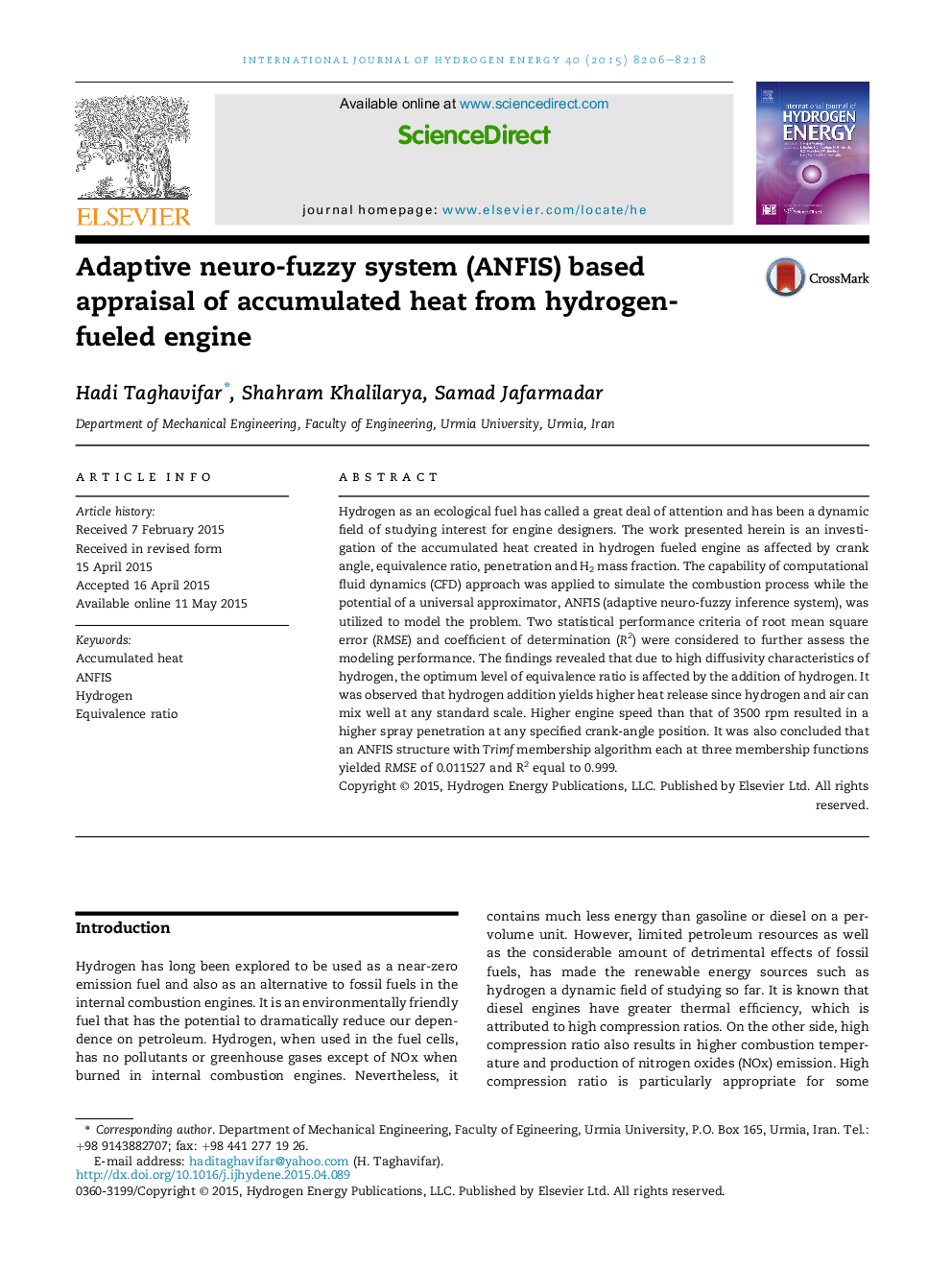| Article ID | Journal | Published Year | Pages | File Type |
|---|---|---|---|---|
| 1270815 | International Journal of Hydrogen Energy | 2015 | 13 Pages |
•Prediction of accumulated heat of hydrogen fueled diesel engine.•Application of a coupled CFD-ANFIS approach for modeling accumulated heat in combustion chamber.•Direct Injection Compression Ignition hydrogen Fueled Engine was assessed.•Effect of penetration, Equivalence ratio, and H2 mass fraction on accumulated heat was studied.
Hydrogen as an ecological fuel has called a great deal of attention and has been a dynamic field of studying interest for engine designers. The work presented herein is an investigation of the accumulated heat created in hydrogen fueled engine as affected by crank angle, equivalence ratio, penetration and H2 mass fraction. The capability of computational fluid dynamics (CFD) approach was applied to simulate the combustion process while the potential of a universal approximator, ANFIS (adaptive neuro-fuzzy inference system), was utilized to model the problem. Two statistical performance criteria of root mean square error (RMSE) and coefficient of determination (R2) were considered to further assess the modeling performance. The findings revealed that due to high diffusivity characteristics of hydrogen, the optimum level of equivalence ratio is affected by the addition of hydrogen. It was observed that hydrogen addition yields higher heat release since hydrogen and air can mix well at any standard scale. Higher engine speed than that of 3500 rpm resulted in a higher spray penetration at any specified crank-angle position. It was also concluded that an ANFIS structure with Trimf membership algorithm each at three membership functions yielded RMSE of 0.011527 and R2 equal to 0.999.
